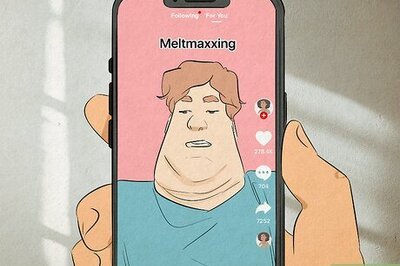
views
London: An MP belonging to UK's ruling coalition has moved legislation in the House of Commons to ban the 'burqa' or Islamic veil in public places on the ground that it is "against the British way of life".
Philip Hollobone, the Conservative MP from Kettering, has moved a private members bill called the Face Coverings (Regulation) Bill, which had its first reading in the House on Tuesday.
The legislation seeks to regulate the use of "certain facial coverings" in public. He said this "would obviously have a big impact for those who wear full-face Islamic veils".
He has previously described the 'burqa' as being "against the British way of life". Explaining the bill, Hollobone said: "I think it's inappropriate to cover your face in public, whether it's a burka, a balaclava or anything else.
"We are never going to get along with having a fully integrated society if a substantial minority insists on concealing their identity from everyone else."
Hollobone has previously described the burka, which covers the entire head, as "offensive" and "against the British way of life", saying that wearing one was the religious equivalent of "going round with a paper bag over your head".
After the bill's reading, it will be printed in parliamentary papers but because Hollobone was only drawn 17th in the ballot, it stands little chance of progress.
During a debate on International Women's Day in March, Hollobone said: "In my view and that of my constituents, the niqab and the burqa are oppressive dress codes that are regressive as regards the advancement of women in our society".
He added: "The simple truth is that when a woman wears the burqa, she is unable to engage in normal, everyday visual interaction with everyone else. That is indeed the point of it. It is deliberately designed to prevent others from gazing on that person's face.
The problem with that is that it goes against the British way of life."
Hollobone said that many women were forced to wear the burqa by their husband or their family. The resulting lack of interaction meant that many were unable to speak or learn English and will never have any chance of becoming integrated into the British way of life, he added.
He said: "This is Britain; we are not a Muslim country. Covering one's face in public is strange, and to many people it is intimidating and offensive.
I seriously think that a ban on wearing the niqab or the burqa in public should be considered."


















Comments
0 comment